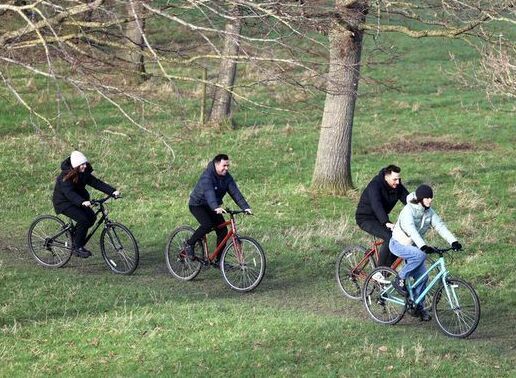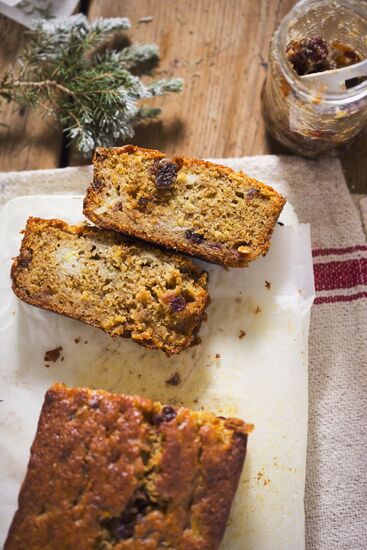Tom Phelan in a childhood photo.
PART 2
By Tom Phelan
Upon our arrival at the convent in Lucan Aunt Ellen was more emotional than anyone else. She beamed forth an excess of amiability, heroically kept the tears from spilling out. Mam and Dad suddenly became reserved and we children fell shyly silent. Soon, a gaggle of nuns dressed in black habits, black wimples and white breastplates came out to surround us. They oohed and aahed.
“Look how big you all got!”
“And what class are you in now?”
“Who’s your teacher?”
“What lovely dresses!”
“Tom looks more like a priest every day!”
“He’ll make a lovely priest.”
Embarrassed at being singled out, I hung my head and stared at my shoes.
“Aren’t those a lovely pair of ducks!”
“Did they quack on the way up?”
“Sister Veronica will be so happy to have new layers.”
The flock of nuns soon scattered back to their duties, and Aunt Ellen led us into the visitors’ parlor and told the children where to sit. Dad and Mam and Aunt Ellen sat on a black leather-covered antique chaise longue, Mam in the middle. Forbidden to us was a straight-backed chair, its wood gold-painted, its upholstery purple-flowered and its curvaceous legs sufficiently short to accommodate a dwarf king.
An oval table with carved animal claws for feet was in the middle of the room; a gold-rimmed porcelain bowl rested on top its own upside-down image in the polished surface of the table table. The gleaming brass of the fireplace and the huge, baroque-framed mirror above the mantelpiece reflected the room. Three sheepskins, their fleeces fluffed and spotless, served as throw rugs. Engravings of biblical scenes hung on the walls: the hairy head of John the Baptist on a tray; soldiers with helmets pulling fat naked babies out of their mothers’ arms and sticking them with their short swords; the boy David, sword in one hand and the dripping head of Goliath, held by the hair, in the other.
“I wish Aunt Ellen would cover those pictures with sheets of newspaper or towels or something,” Lizzie moaned on the way home.
Aunt Ellen, only her face and hands exposed, her long and large-beaded rosary rattling with her every move, began to pepper us with questions. But the one-worded responses of the children soon wore her down, as they always did, and she and my parents drifted into establishing the relationships between long-dead relatives.
As an adult I realized that they never mentioned my grandfather Phelan. Were they hiding a family secret? What exactly did “stricture of the esophagus” on his death certificate mean? Even today, he remains a mystery.
We children quickly became bored. Niall slipped off his chair onto one of the sheepskins. Soon, Eddie and I had our own fleece. We sat and waited to be told to get back in our chairs, but when nothing was said, we used our feet to propel ourselves along the polished floor. But our fun was quickly ended.
“Stop that!” Dad said, and I knew we would be reprimanded the next day.
We spent the next hour wriggling in our chairs and making faces at each other. No one made a face at Anna because she would tell, but Lizzie managed to secretly stick her tongue out at her.
Surreptitiously, Niall loaded his cap gun and pulled the trigger. In the quiet parlor the shot almost unseated the adults and Anna, while the rest of us snorted and the startled Niall leaped up and dropped the gun.
“Niall!” Dad said with iron in his voice, and his glare meant, “Wait till we get home!”
Niall’s terrorist attack was laughed about for years when Dad wasn’t around. “It wasn’t funny at all,” Anna would say.
To escape the tension in the room, I asked, “Aunt Ellen, can I go to the lav?”
“Lavatory, Tom!” Mam said.
Smiling Aunt Ellen led the way out of the parlor through a solid white door that swung silently on its hinges and opened without having to be lifted or dragged. The lavatory was as big as our kitchen. Everything was white and shining, except for the splashboard above the sink; this was a pane of glass with a painting on the back showing purple heather, furze bushes and large-horned cattle with their hair hanging down over their eyes.
Aunt Ellen pointed out the wooden grip of the flush chain. “Tom, be sure to pull that when you’re finished.” She knew we did not have indoor plumbing at home.
I spent a long time feeling the cool, reflective stainless steel of the taps, running my hands over the smooth porcelain, peering at the Scottish cattle and wondering how they could see, looking at myself in the full-length mirror and flushing the water again as soon as the cistern was full. I switched the electric light on and off a dozen times. I lay on my back on the white floor tiles and gazed up at the white ceiling. I could see rainbows in the dangling bits of glass in the small candelabra. Suddenly my reverie was interrupted by Anna’s commanding voice coming through the door on the tail of a sharp and angry knock.
“Tom, come out! Aunt Ellen is very cross with you! And so is Daddy.”
I obeyed immediately.
Before we went into dinner, Aunt Ellen led us to the convent chapel. We all knelt, joined our hands and bent our heads in an attitude of prayer, but the anticipation of the imminent feast was a great distraction.

The author on a trip to Ireland a few years ago.
In the formal dining room, Aunt Ellen fussed and hovered. Moving around behind our chairs she pressed delicacies on us that reminded us of things to be avoided while walking in our farmyard. But we made every effort not to hurt her feelings, so instead of refusing her offerings, we left the table with cucumber and hard-boiled egg slices, bits of tongue and chunks of cheese wrapped in handkerchiefs in our pockets.
Only in Lucan did we ever see more than one dessert on a table. There was meringue, apple cake and custard, rhubarb cake, chocolate biscuits and a colorful layer cake. We children sampled everything.
At the end of the meal, Aunt Ellen went upstairs to retrieve the trove of gifts she had collected since our last visit to Lucan. Eddie got a tiny toy tractor and Niall a small cloth horse. The girls received colorful balls of knitting wool. I got an adventure book. As I grew older there would be fewer such stories and more books about youthful saints who had been models of virtue. One of these, St. Dominic Savio, was asked while playing football what he would do if had only one hour left to live. He replied, “I would continue playing football.” I found it difficult to imagine a saint playing sports. I thought all saints were trapped in stained-glass windows or stony statues, their eyes turned to the sky and hands piously joined at the chest.
When it was time to leave we all assembled outside the front door, and Mam took a family photograph with her Brownie Box camera. All the nuns came out to see us off and Aunt Ellen continued to smile her broad smile as we waved to her out the back window.
Before we reached Baldonnel Aerodrome, we had thrown all the hidden food through the car windows and out into the darkness.
When Joe Shortall switched on the headlights we could see white sparks bumping off the windshield.
“They’re not sparks,” Joe said. “They’re moths.” But we knew he was trying to cod us. because the sparks were the same as those flying off the white-hot horseshoes on Peetie Flanagan’s anvil.
Back in our farmyard, Dad carried the sleeping Niall from the motor car into his bed. Soon Eddie and I fell asleep clutching our cap guns, and my sisters had secreted their ribbons under their pillows. The next day after supper, we sat at the kitchen table and wrote thank-you letters to Lucan.
Aunt Ellen was instrumental in the building of a high school for girls in the village of Lucan. She was as focused on living a good life as Dad was on wringing a livelihood out of his farm.
For Part 1, click here.
© 2020 by Glanvil Enterprises, Ltd. Tom Phelan is the author most recently of the memoir “We Were Rich and We Didn’t Know It.” Go to tomphelan.net for more information.








